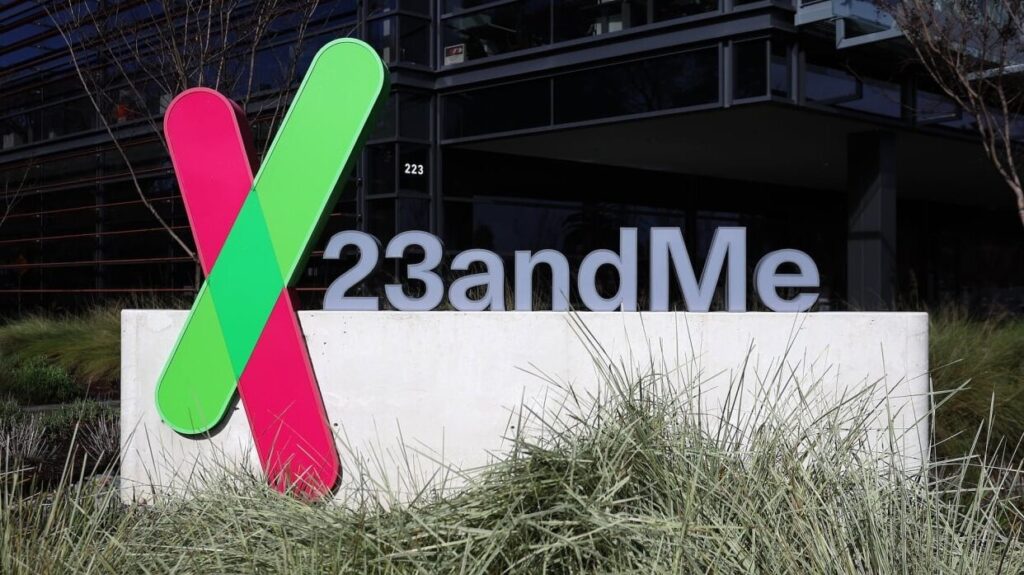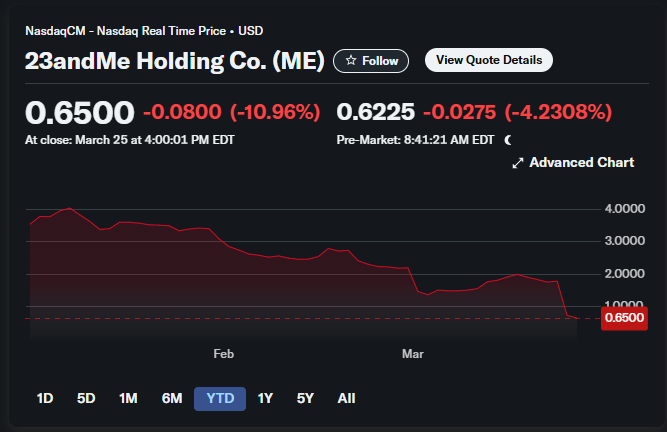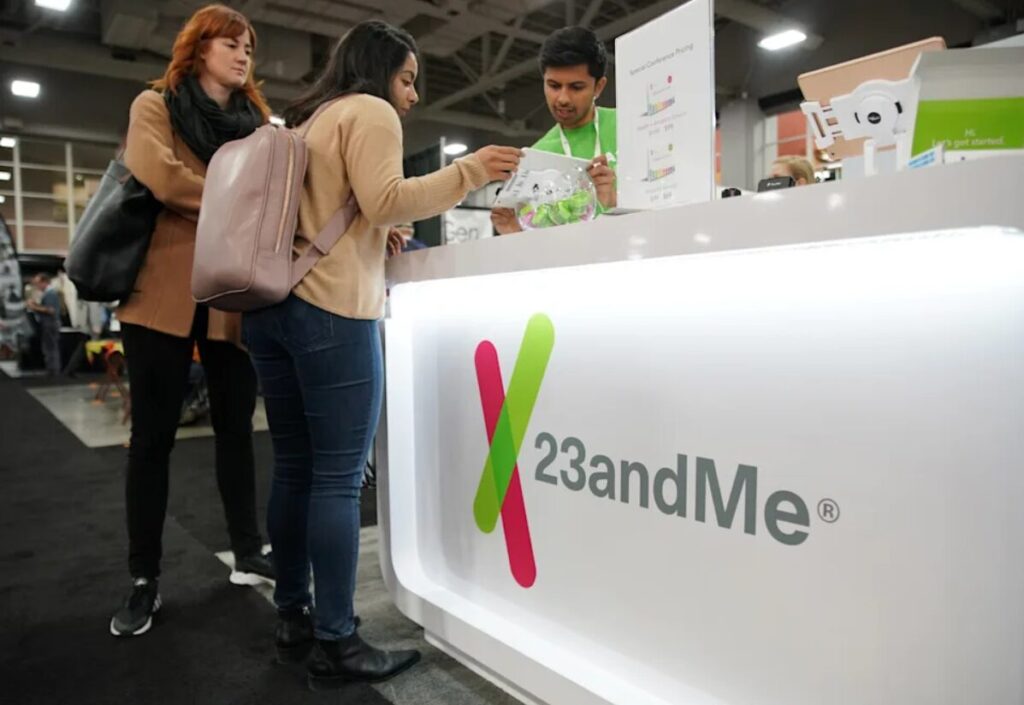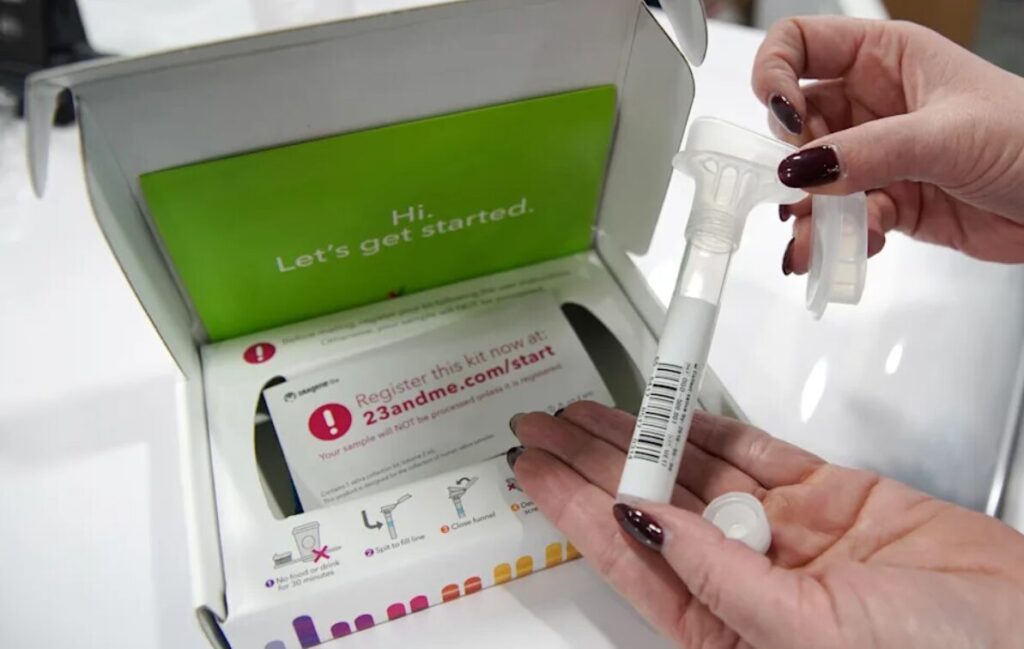23andMe stock has actually plummeted dramatically, right now, following the company’s bankruptcy filing announcement, raising some serious concerns about genetic data privacy and also the future of this once-promising biotech company. The personalized genomics firm, which currently holds DNA data from approximately 15 million customers, saw its shares fall 59% on Monday, followed by an additional 11% drop on Tuesday as investors reacted to the news.
Also Read: Shiba Inu: SHIB April 2025 Price Prediction
23andMe Bankruptcy Shakes Biotech—DNA Data & Investor Panic


The bankruptcy filing has, at the time of writing, triggered some widespread uncertainty about what will happen to 23andMe’s most valuable asset: the genetic data that was collected from millions of customers who submitted saliva samples for analysis. This data was also previously protected under some contractual agreements between the company and its customers, but the bankruptcy proceedings have now called these protections into question.
Legal Gray Area for Customer DNA Data
According to Jonathan Lipson, a bankruptcy law professor at Temple University’s Beasley School of Law, stated:
“I think the law on that is pretty unclear at this point.”
Under bankruptcy protection, a “stay” halts enforcement of all contractual obligations against the company, and its assets—potentially including customer biometric data—become the property of a bankruptcy estate.
“While I don’t know exactly what the legal characterization of this data is,” Lipson explained, “I’m sure they’re thinking about it.”
The uncertain legal ground creates significant complications for both 23andMe and also customers who want their genetic information removed from the company’s records.

Also Read: BRICS & US Race For Digital Finance Supremacy: Who’s Winning?
State Protections for Genetic Information
Approximately 20 states have, as of now, implemented protections that apply specifically to biometric data, including California, Colorado, New Jersey, and also Texas. Most of these states grant consumers the right to delete their information.
California Attorney General Rob Bonta has been particularly vocal about the issue, warning California residents that they are legally entitled to scrub their genetic data from 23andMe’s systems. Bonta stated:
“Given 23andMe’s reported financial distress, I remind Californians to consider invoking their rights and directing 23andMe to delete their data and destroy any samples of genetic material held by the company.”
Also Read: Ripple: How High Will XRP Surge In April 2025?
CEO Departure Amid Acquisition Attempts
The 23andMe Special Committee released news today indicating their plan to take the company through the Chapter 11 process. While I am disappointed that we have come to this conclusion and my bid was rejected, I am supportive of the company and I intend to be a bidder. I have…
— Anne Wojcicki (@annewoj23) March 24, 2025
Anne Wojcicki, co-founder and CEO of 23andMe, resigned from her position on Friday following the rejection of her nonbinding acquisition offer by the company’s board. Wojcicki had been attempting to take the company private since April but was unsuccessful.
In a social media post, Wojcicki stated:
“While I am disappointed that we have come to this conclusion and my bid was rejected, I am supportive of the company and I intend to be a bidder. I have resigned as CEO of the company so I can be in the best position to pursue the company as an independent bidder.”
National Security Implications
The bankruptcy raises, at present, significant questions about national security interests in genetic data. Ryan Sulkin, a data protection attorney at Benesch, suspects that only certain buyers would satisfy U.S. national security interests in a transition of 23andMe’s troves of personal genetic data.
Sulkin asked:
“Does this entity need to be solely owned by US interests? If so, then you start getting into a TikTok scenario.”
This refers to legislation requiring the social media app to find a U.S. buyer for its operations.
Also Read: De-dollarization Gains Momentum: China and Russia’s Joint Push for a New Global Order
Future of Customer Data Protection


The company has attempted to reassure customers that their information remains secure despite the bankruptcy filing. In an email to customers, 23andMe stated:
“The Chapter 11 filing does not change how we store, manage, or protect customer data. Any buyer of the company would be required to comply with applicable law with respect to the treatment of customer data.”
However, Daniel Gielchinsky, a partner at DGIM Law, noted:
“The unfortunate reality is that the more customers who go and scrub their data… the less value this entity has as a going concern.”
This highlights the company’s reliance on this information for its financial worth.


23andMe’s bankruptcy filing reflected $277 million in assets as of the end of 2024 and also debts of $215 million. The company has requested court authorization to pursue a structured sale of its assets through an auction, with the fate of millions of customers’ genetic information hanging in the balance as the biotech stock crash continues to reverberate through the industry.
Also Read: Bitcoin: Here’s When BTC Could Reclaim $100,000





